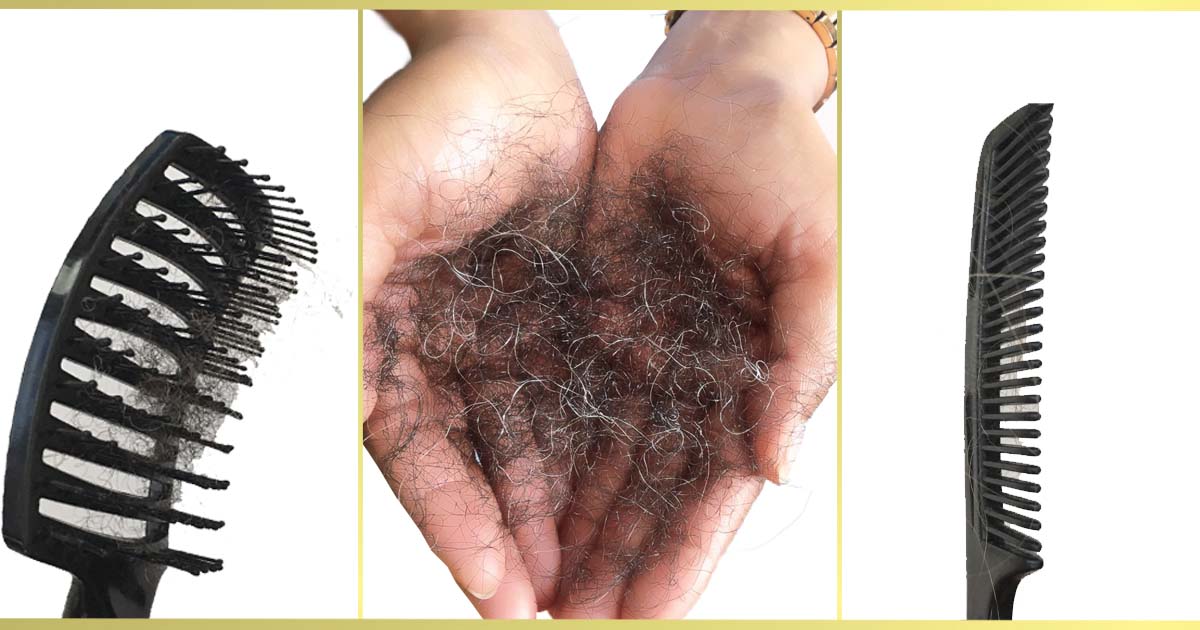
Hair loss is a complex condition that is not attributable to one single cause. Some of the main causes of hair loss can occur as a result of a combination of environmental factors as well as a combination of genetic predispositions.
In some instances, medical conditions or certain procedures and medications such as necessary for cancer patients, can also have an impact on the onset of hair loss. Research suggests that whatever the primary trigger, the final stage in the onset of hair loss involves too much production of dihydrotestosterone (DHT).
Dihydrotestosterone (DHT) is a derivative of the male hormone testosterone and it is not a friend to the hair follicles on your head and is at the root cause for many types of hair loss. It can bind onto the hair follicle, interfering with the flow of nutrients to the hair root and essentially starving the hair. As a result, the hair will die and fall out.
In some instances, medical conditions or certain procedures and medications can also have an impact on the expression of hair loss. Current research suggests that whatever the underlying trigger, the final stage in expression of hair loss involves excessive production of the dihydrotestosterone (DHT) hormone. This is converted by an enzymatic reaction from the precursor male sex hormone, testosterone, which women also have in trace amounts under normal conditions.
Understanding The Hair Growth Cycle
To get a better understanding of what is considered normal hair loss, we must first understand the hair growth cycle. Hair growth goes through three main stages: the growth stage, referred to as the anagen phase, a period of rest known as the catagen phase, and the final shedding stage, or telogen phase.
- Anagen –Anagen is the growth or active phase of the hair. The cells in the root of the hair are dividing rapidly. A new hair is formed and pushes the hair that has stopped growing up the follicle and eventually out. During this phase, the hair grows about one half inch every 28 days. Scalp hair stays in this active stage for a period of between three to five years.
Some people have difficulty growing their hair beyond a certain length because they have a short active phase of growth. On the other hand, people with very long hair have a long active phase of growth.
- Catagen – About 3% of all hairs are in this transitional phase at any time. This phase lasts for about two to three weeks. Growth stops and the outer root sheath shrinks and attaches to the root of the hair.
- Telogen – The telogen phase is the resting phase of the hair cycle. It typically lasts between three to five months. During this final stage of a hair’s lifecycle, the hair ceases to grow any further and it becomes fully keratinized.
After the hair is shed and telogen phase concludes, new hair will soon begin growing in its place and the cycle renews.
Hair Loss In Women
By the age of 60, statistics show that over 40% of women will experience some form of hair loss.
Although testosterone is present in only trace amounts in females, even slight changes to the established balance can result in excess DHT (dihydrotestosterone) production, which is thought to be the leading cause of hair loss.
Apart from genetic causes of hair loss, other major contributing factors in women may include lifestyle factors such as excessive or improper use of hair straighteners, hair products, poor diet, stress levels, as well as changes hormone levels, menopause and post-parturition, to name a few.
Hair Loss In Men
Studies show that around 25% of men will experience balding by the age of 30. While statistics differ across ethnicities and populations, recent statistics indicate that more than 80% of men will suffer male pattern baldness throughout their lifetime.
While the most common types of male hair loss is bald spots, receding hairline, or thinning crown, men’s hair loss comes in all different types and forms. However, the most common form of male pattern baldness; androgenic alopecia, accounts for 90% of hair loss cases affecting men worldwide.
What To Do Next
For addition information on hair loss treatments and causes or to learn more about cranial prosthetic hair systems or hair replacement systems, please call one of our hair loss expert at (858) 259-6833.









